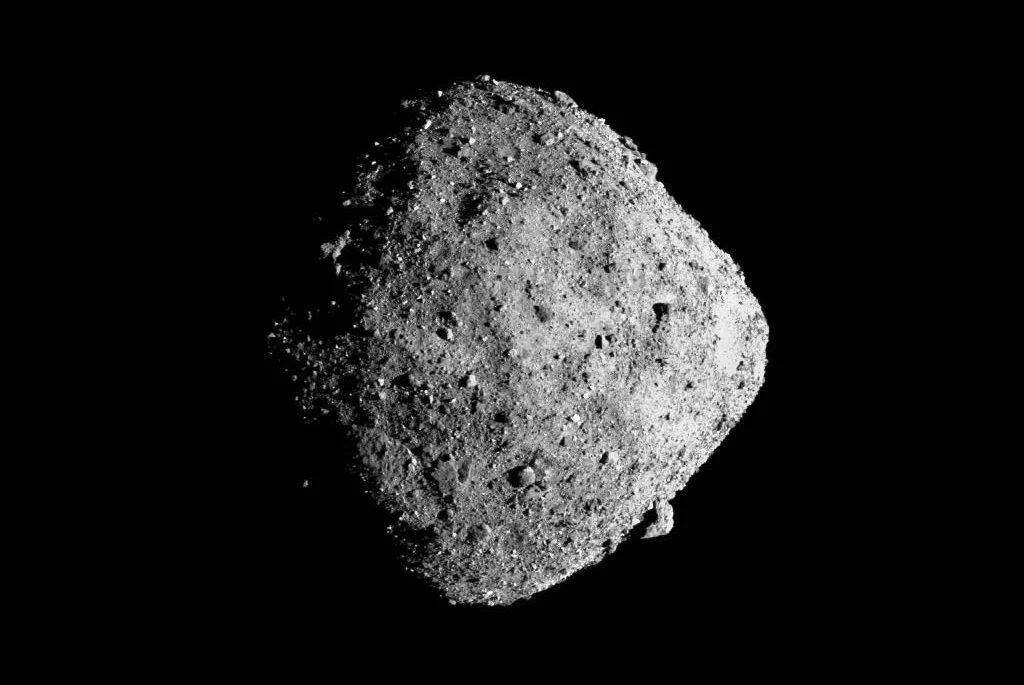Scientists Warn of Catastrophic Consequences if Asteroid Bennu Strikes Earth in 2182
Asteroid Bennu, a near-Earth object, approaches our planet every six years, coming as close as 186,000 miles (299,000 km). However, scientists warn that in the future, Bennu could pose a serious threat, with a one-in-2,700 chance of colliding with Earth in September 2182.
New research based on computer simulations suggests that if Bennu—an asteroid roughly 500 meters (0.3 miles) in diameter—were to impact Earth, the results would be devastating. Beyond immediate destruction, the collision could release 100-400 million tonnes of dust into the atmosphere, triggering long-term climate disruptions.
Global Impact of an Asteroid Collision
According to lead researcher Lan Dai of the IBS Center for Climate Physics at Pusan National University, such an event would cause a dramatic drop in global temperatures, reduced sunlight, and lower precipitation, leading to an “impact winter” lasting three to four years. In a worst-case scenario:
- Global temperatures could decrease by 7°F (4°C).
- Rainfall could decline by 15%.
- Plant photosynthesis could drop by 20-30%, severely affecting food production.
- Ozone depletion of up to 32% would expose the planet to more harmful UV radiation.
The impact would also generate powerful shockwaves, earthquakes, wildfires, and thermal radiation, leaving a massive crater and launching debris high into the atmosphere.
Environmental and Ecosystem Effects
Large amounts of aerosols and gases would enter the upper atmosphere, causing long-term climatic shifts. While land plants might struggle to recover, ocean plankton could rebound within six months, potentially leading to massive diatom (algae) blooms due to iron-rich dust deposition. However, severe ozone depletion in the stratosphere would further exacerbate environmental damage.
Though the study did not calculate potential human casualties, Dai noted that the death toll would depend on the asteroid’s impact location.
Understanding and Mitigating the Threat
Scientists have studied Bennu extensively, classifying it as a “rubble pile” asteroid—an agglomeration of rocky debris rather than a solid mass. NASA’s OSIRIS-REx mission visited Bennu in 2020, collecting samples that could offer insights into the early solar system. Recent analysis even suggests that Bennu contains the chemical building blocks of life, supporting theories that asteroids may have helped seed early Earth.
Asteroid impacts have shaped Earth’s history, including the massive asteroid that struck the Yucatán Peninsula 66 million years ago, wiping out about 75% of Earth’s species, including the dinosaurs.
In 2022, NASA successfully tested a planetary defense strategy with its DART mission, altering the trajectory of the asteroid Dimorphos. This proof-of-concept mission raises hopes that, should Bennu or another asteroid pose a direct threat, similar techniques could deflect it.
“The probability of Bennu striking Earth is small—just 0.037%—but the potential consequences are severe,” said study co-author Axel Timmermann. “Such an impact could cause long-term food shortages and climate conditions similar to those seen in the most significant volcanic eruptions of the past 100,000 years. It’s crucial to consider the risk and prepare accordingly.”


